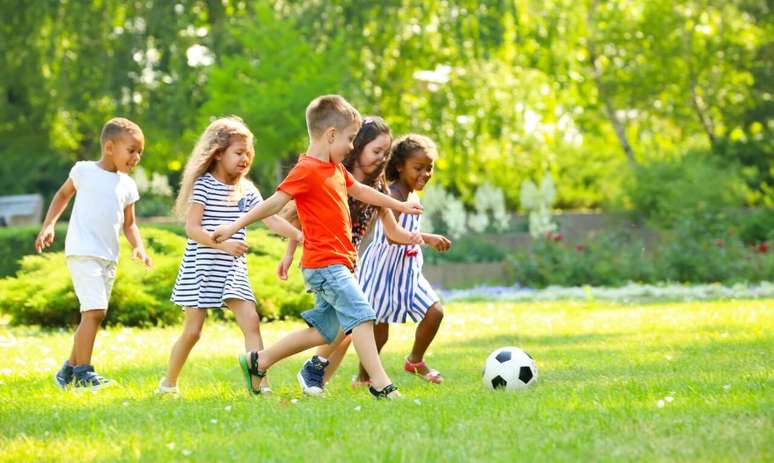Practicing physical activity and a balanced diet are important for the good development of children
It’s no secret that practicing physical exercise offers great benefits to your health, both physical and mental. What many don’t know is that the practice must be started from childhood. Furthermore, a balanced diet is also essential for the well-being and development of children.
Exercises in childhood
“Learning a sport, wrestling, dancing, cycling, skating or some other sporting activity that has not yet been practiced, is an adaptation mechanism that can contribute to the development of children”, says Professor Rodrigo Sartori, of the course Training in Physics at the FSG University Centre. This is because the cognitive stimulation through new motor skills in childhood they can induce changes in specific functional networks of the nervous system.
“Studies on the benefits of performing physical exercises have shown that this practice improves and protects brain function. This suggests that physically active children have a lower risk of developing mental disorders, as well as showing better performance in some cognitive functions” , explains Rodrigo.
The expert adds that it is common to see children obsessed with cell phones and other technologies, which reduces the practice of physical activities. However, the school environment It could be an opportunity to keep the little ones active.
“Performing physical exercises at school helps in the learning processes and in a series of aspects of the child’s development. Specifically, we realized that there is a relationship between the performance of motor skills and the cognitive functions (acquisition of knowledge) important for the student success in school,” he explains.
Baby food
Nutrition is also essential for the healthy growth of children. Processed foods, such as sandwich cookies, sodas and snacks, as well as excess sugar, are major problems in childhood. They do not provide the necessary nutrients and damage the children’s health, Therefore, it is necessary to avoid recurring consumption.
Parents and guardians know that it’s not always easy to introduce healthy foods into their little ones’ routine. However, some tricks help to enrich children’s daily menu.
“If the child doesn’t accept it, try preparing the food in another way, with different cuts, and try again. Never give up after the first try, but also don’t force him to eat more than he can handle. Another option is create playful dishes and invite the child to help organize the plate”, explains André Nascimento, nutritionist and professor of the Nutrition course at UNINASSAU – Centro Universitário Maurício de Nassau Recife.
“Adults must set an example and their meals must also be healthy. Seeing the elderly eating something can arouse interest on the part of the child and there is the possibility that he will ask to taste the food. It is important to reinforce these distractions, arguments and punishments during the meal make the experience negative and make the whole process difficult”, adds André.
The expert underlines that eating well allows you to do good physical and mental development. “[Com uma alimentação inadequada]problems with concentration, growth and health can arise throughout life. Diabetes, hypertension and hypertriglyceridemia are some examples. Therefore, when you notice continuous refusals in relation to the foods offered, it is interesting to seek a professional to carry out a nutritional assessment of children”, concludes André.
Source: Terra
Ben Stock is a lifestyle journalist and author at Gossipify. He writes about topics such as health, wellness, travel, food and home decor. He provides practical advice and inspiration to improve well-being, keeps readers up to date with latest lifestyle news and trends, known for his engaging writing style, in-depth analysis and unique perspectives.





![Such a wonderful sun in advance: Summary of the Episode on Monday, Monday, Monday 22, Monday, September 22, Monday [SPOILERS] Such a wonderful sun in advance: Summary of the Episode on Monday, Monday, Monday 22, Monday, September 22, Monday [SPOILERS]](https://fr.web.img6.acsta.net/img/29/2a/292a2052bcdfc4ca2838ac8d80b3f296.jpg)



